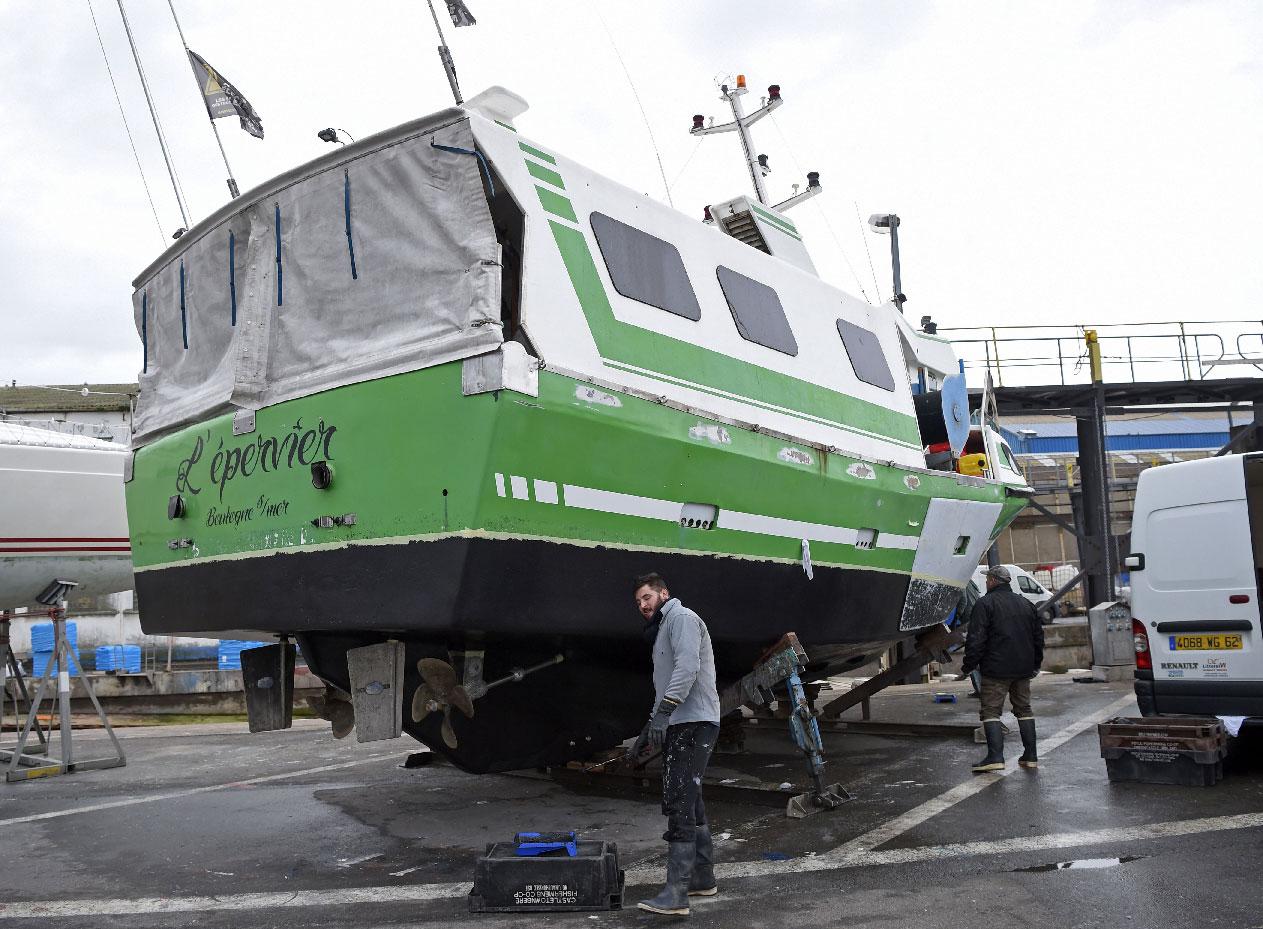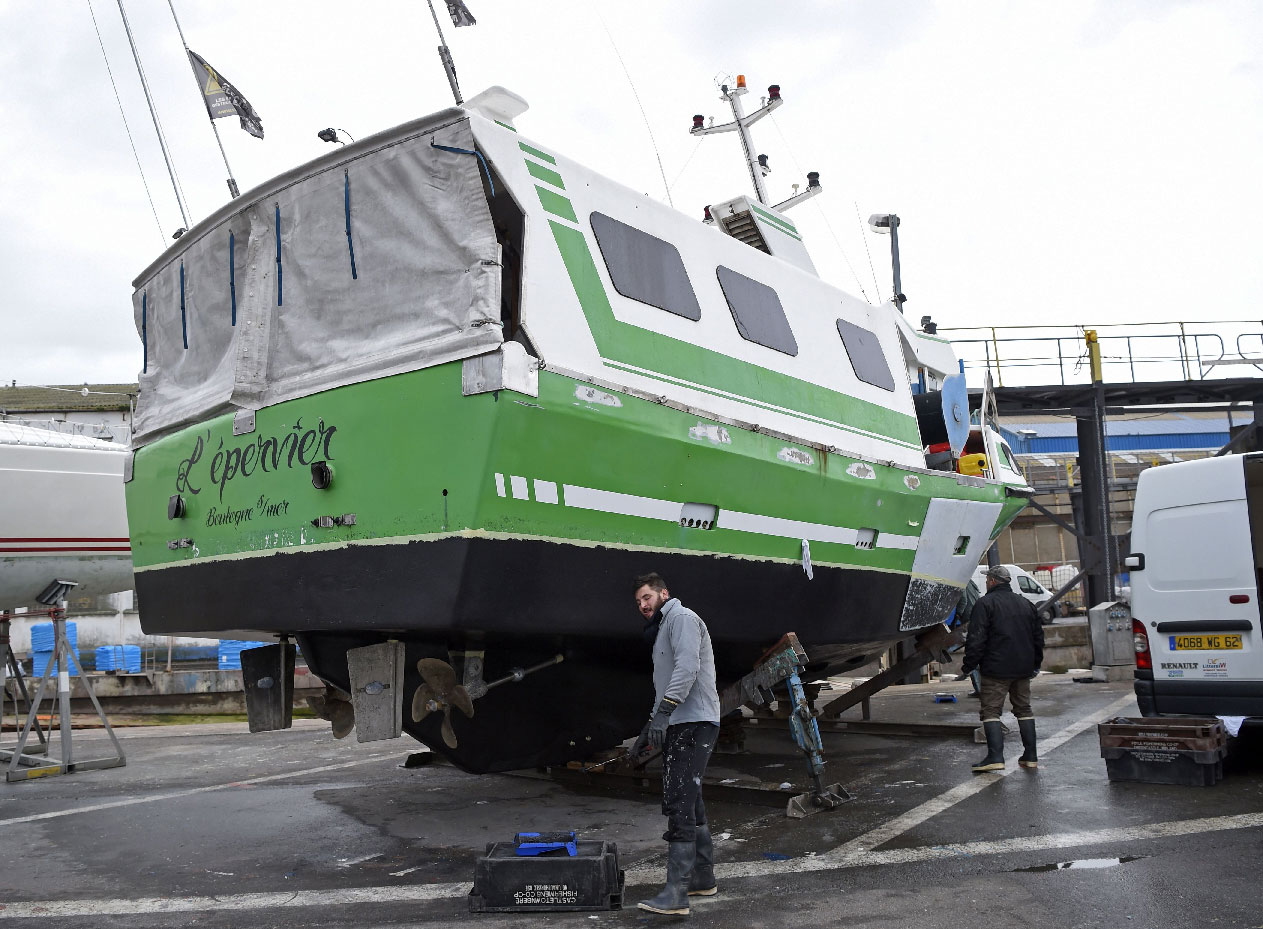Migrants aim for Britain with perilous new sea route
WISSANT - In early November, police in the northern French village of Wissant made the first of a series of unusual discoveries in the sand dunes: an inflatable boat intended to ferry people in the dead of night to Britain.
From the beach in Wissant, the cliffs of the British coastline stand as a thick chalky line on the horizon, separating the watery grey of the English Channel from the shifting rainclouds.
"The Channel looks narrow, but it's still 30 kilometres (19 miles)," says Wissant Mayor Bernard Bracq.
His picturesque village, a 20-minute drive from the sprawling port of Calais, has become one of the launching posts for asylum seekers trying to reach Britain by boat.
In the last fortnight, French authorities have detected 28 attempts by migrants, mostly Iranians, to cross one of the world's busiest shipping routes.
That figure is more than double the number of attempts for the whole of last year, leaving border police scrambling to understand why.
The usual method for travelling illegally to Britain has been stowing away in one of the thousands of trucks that rumble daily between the countries.
But in Wissant alone, at least three inflatable dinghies hidden in the dunes have been found in recent weeks by police, who have stepped up their surveillance along the coast.
"They're looking for a plan B," Bracq says, of the people tempted to risk hypothermia, collisions with other boats and sinking in order to cross by sea. "It's a bad plan B, though, because it's extremely dangerous."
Desperate journeys
Another 20 minutes west lies the fishing port of Boulogne-sur-Mer where a brazen theft three weeks ago brought the sudden change in tactics to public attention.
Local fisherman Pascal Deborgher was woken at home at 1:00 am on November 13 by the coastguard informing him that his boat was doing strange manoeuvres on a route used by ferries near the English coast.
A few hours earlier, a group of Iranians had stolen the 12-metre (40-foot) L'Epervier from its dock and sailed it erratically in the darkness across the Channel.
British authorities intercepted the 17 people on board, including three children.
"We've learned from the investigation that one of them knew a bit about fishing, and had sailed boats before," Deborgher said.
A people-smuggler is also thought to have accompanied the migrants for the first part of the journey before leaving on another smaller vessel, Deborgher says.
The 51-year-old fears the engine has been damaged, which would add to the cost of replacing broken equipment and the lost earnings.
But Deborgher hopes to be back out fishing for sole, a highly prized flatfish, sometime this week.
"It's bad for us -- it's had a real effect and this is our livelihood," he said, while carrying out repairs in a dry dock.
"But it's not completely their fault. If there was a war here and we needed to save our families, what would we do?"
Brexit-related?
Explanations for the sudden spurt in sea crossings vary.
The weather during November was unusually calm, coastguard and security officials say -- although the winter chill has nonetheless left many attempting the crossing with hypothermia.
Others have suggested that Britain's impending exit from the European Union next March could be playing a role, prompting fears that Britain will clamp down even more on immigration post-Brexit.
But Christian Salome, who heads the Auberge des Migrants, a local charity which has fed and clothed thousands of people, scoffs at that idea.
"Migrants are not following European politics," he says.
Fabien Sudry, the top security official in the northern Pas-de-Calais region, is also sceptical.
He thinks the most likely reason is the arrival over the last month of larger-than-usual numbers of Iranians in the Calais area who generally have more money than African migrants.
They have attracted, or led to the creation of, a new people-smuggling network which is trying to avoid increasingly tough security controls around the port.
"We are much more effective in detecting clandestine passengers," Sudry says, pointing to new scanning technology among other measures.
This in turn has created greater desperation among the young men in Calais who cluster, hunched in the cold, under motorway bridges or in tents on muddy wasteland near the port.
An estimated 600 people from Africa, South Asia and Iran are in the industrial town, the main gateway for trade in goods between France and Britain.
Numbers are much lower than at their height when nearly 10,000 lived in a notorious camp known as the Jungle, which was torn down in late 2016.
"I know people who have made 20 to 30 attempts," an Iranian who gave his name as Mehti said, as he stood in clouds of campfire smoke at one semi-tolerated camp of tents.
Smugglers prey on such misery, visiting at night offering supposedly safe passage in trucks with hidden compartments -- for 4,000-8,000 euros ($4,500-$9,000) per person.
The price for the crossing on Deborgher's stolen fishing boat is believed to have been around 10,000-15,000 euros per person, according to police.
The cliffs of England may be tantalisingly close, but, as Mehti put it, "it's really, really difficult" to reach them.



